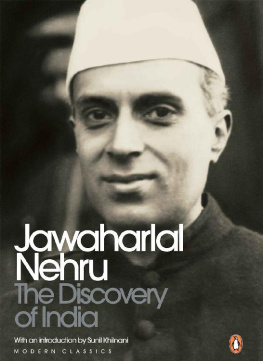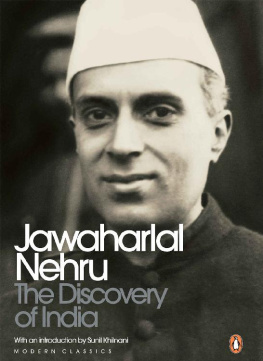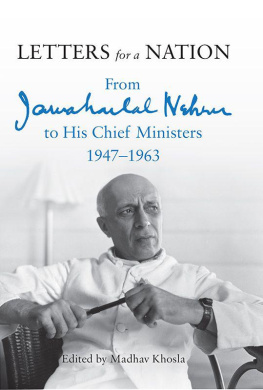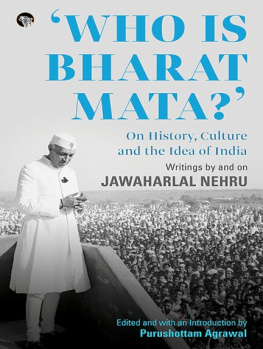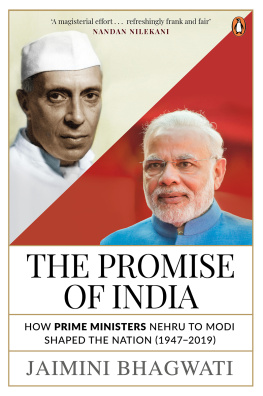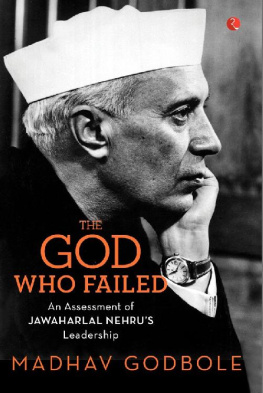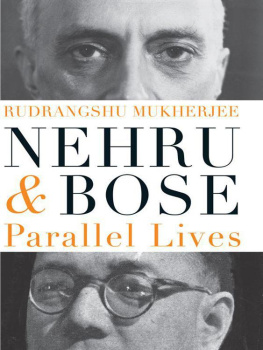Jawaharlal Nehru - Glimpses of World History
Here you can read online Jawaharlal Nehru - Glimpses of World History full text of the book (entire story) in english for free. Download pdf and epub, get meaning, cover and reviews about this ebook. year: 2004, publisher: Penguin Books Ltd, genre: Politics. Description of the work, (preface) as well as reviews are available. Best literature library LitArk.com created for fans of good reading and offers a wide selection of genres:
Romance novel
Science fiction
Adventure
Detective
Science
History
Home and family
Prose
Art
Politics
Computer
Non-fiction
Religion
Business
Children
Humor
Choose a favorite category and find really read worthwhile books. Enjoy immersion in the world of imagination, feel the emotions of the characters or learn something new for yourself, make an fascinating discovery.

- Book:Glimpses of World History
- Author:
- Publisher:Penguin Books Ltd
- Genre:
- Year:2004
- Rating:5 / 5
- Favourites:Add to favourites
- Your mark:
- 100
- 1
- 2
- 3
- 4
- 5
Glimpses of World History: summary, description and annotation
We offer to read an annotation, description, summary or preface (depends on what the author of the book "Glimpses of World History" wrote himself). If you haven't found the necessary information about the book — write in the comments, we will try to find it.
Glimpses of World History — read online for free the complete book (whole text) full work
Below is the text of the book, divided by pages. System saving the place of the last page read, allows you to conveniently read the book "Glimpses of World History" online for free, without having to search again every time where you left off. Put a bookmark, and you can go to the page where you finished reading at any time.
Font size:
Interval:
Bookmark:


with 50 maps by J.F. Horrabin

PENGUIN BOOKS
Jawaharlal Nehru was born on 14 November 1889 at Allahabad and educated in England, at Harrow and Cambridge. In 1912, Nehru returned home to play a central role in Indias struggle for freedom from British colonial rule, and then, as prime minister of independent India for seventeen years, went on to shape the nations future as a modern, secular and democratic state. He died in office, on 27 May 1964. Visionary and idealist, scholar and statesman of international stature, Nehru was also an outstanding writer. His three most renowned booksAn Autobiography, Glimpses of World History and The Discovery of Indiahave acquired the status of classics, and are all published by Penguin.
Jawaharlal Nehrus three classicsGlimpses of World History, An Autobiography and The Discovery of Indiaremain essential reading for anyone who wishes to understand the ideas and personalities that have shaped India through the ages, and moulded the character and special genius of her people.
The three books deal with different subjects, yet through them runs the common thread of Pandit Nehrus own vision and idealshis passionate commitment to democracy and social justice, his intense aversion to authoritarianism and fundamentalism, and his exuberant celebration of Indias pluralistic culture. All three books were written while he was in prison during the freedom movement, yet they are remarkable for their absence of bitterness. This was characteristic of Panditjis personality, as were the deep humanity and delightful joie de vivre which illuminate these pages.
Though written more than fifty years ago, these books address issues that remain vitally relevant todaythe choice between non-violence and terrorism to attain political goals, the perilous politics of caste and religion, the struggle to conquer hunger, disease and ignorance, the importance of cultivating a scientific temper. Through his views on these and other crucial questions emerges Panditjis noble vision for the India of the futurea vision that is enshrined in our Constitution, that laid the firm foundations on which we have built our democratic, secular polity, and that has made us what we are today.
Generations of readers have been moved and, indeed, enthralled by the three classics, which reflect the power and lucidity of Jawaharlal Nehrus mind, the eloquence of his language, and the radiance of his spirit. I hope they will continue to educate, inspire and guide us for generations to come.
New Delhi
27 May 2004

SONIA GANDHI
My fathers three booksGlimpses of World History, An Autobiography and The Discovery of Indiahave been my companions through life. It is difficult to be detached about them.
Indeed Glimpses was written for me. It remains the best introduction to the story of man for young and growing people in India and all over the world. The Autobiography has been acclaimed as not merely the quest of one individual for freedom, but as an insight into the making of the mind of new India. I had to correct the proofs of Discovery while my father was away, I think in Calcutta, and I was in Allahabad ill with mumps! The Discovery delves deep into the sources of Indias national personality. Together, these books have moulded a whole generation of Indians and inspired persons from many other countries.
Books fascinated Jawaharlal Nehru. He sought out ideas. He was extraordinarily sensitive to literary beauty. In his writings he aimed at describing his motives and appraisals as meticulously as possible. The purpose was not self-justification or rationalization, but to show the rightness and inevitability of the actions and events in which he was a prime participant. He was a luminous man and his writings reflected the radiance of his spirit.
New Delhi
4 November 1980
INDIRA GANDHI
I do not know when or where these letters will be published, or whether they will be published at all, for India is a strange land today and it is difficult to prophesy. But I am writing these lines while I have the chance to do so, before events forestall me.
An apology and an explanation are needed for this historical series of letters. Those readers who take the trouble to go through them will perhaps find the apology and the explanation. In particular, I would refer the reader to the last letter, and perhaps it would be as well, in this topsy-turvy world, to begin at the end.
The letters have grown. There was little of planning about them, and I never thought that they would grow to these dimensions. Nearly six years ago, when my daughter was ten years old, I wrote a number of letters to her containing a brief and simple account of the early days of the world. These early letters were subsequently published in book form and they had a generous reception. The idea of continuing them hovered in my mind, but a busy life full of political activity prevented it from taking shape. Prison gave me the chance I needed, and I seized it.
Prison-life has its advantages; it brings both leisure and a measure of detachment. But the disadvantages are obvious. There are no libraries or reference books at the command of the prisoner, and, under these conditions, to write on any subject, and especially history, is a foolhardy undertaking. A number of books came to me, but they could not be kept. They came and went. Twelve years ago, however, when, in common with large numbers of my countrymen and countrywomen, I started my pilgrimages to prison, I developed the habit of making notes of the books I read. My note-books grew in number and they came to my rescue when I started writing. Other books of course helped me greatly, among them inevitably, H.G. Wellss Outline of History. But the lack of good reference books was very real, and because of this the narrative had often to be slurred over, or particular periods skipped.
The letters are personal and there are many intimate touches in them which were meant for my daughter alone. I do not know what to do about them, for it is not easy to take them out without considerable effort. I am therefore leaving them untouched.
Physical inactivity leads to introspection and varying moods. I am afraid these changing moods are very apparent in the course of these letters, and the method of treatment is not the objective one of a historian. I do not claim to be a historian. There is an unfortunate mixture of elementary writing for the young and a discussion at times of the ideas of grown-ups. There are numerous repetitions. Indeed, of the faults that these letters contain there is no end. They are superficial sketches joined together by a thin thread. I have borrowed my facts and ideas from odd books, and many errors may have crept in. It was my intention to have these letters revised by a competent historian, but during my brief period out of prison I have not had the time to make any such arrangement.
Font size:
Interval:
Bookmark:
Similar books «Glimpses of World History»
Look at similar books to Glimpses of World History. We have selected literature similar in name and meaning in the hope of providing readers with more options to find new, interesting, not yet read works.
Discussion, reviews of the book Glimpses of World History and just readers' own opinions. Leave your comments, write what you think about the work, its meaning or the main characters. Specify what exactly you liked and what you didn't like, and why you think so.

